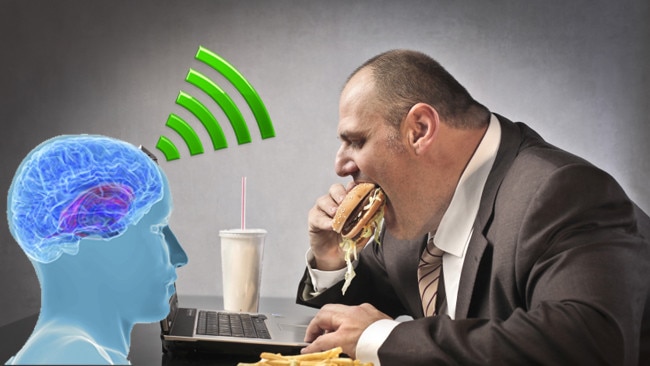Brains of obese people may fail to detect when obese people full, Melbourne scientists say
EXCLUSIVE: THE brains of obese people may be wired to seek out fatty and sugary foods and be failing to detect when people are full, Melbourne scientists say.

VIC News
Don't miss out on the headlines from VIC News. Followed categories will be added to My News.
THE brains of obese people might be wired to seek out fatty and sugary foods and fail to detect when people are full.
Melbourne scientists are studying the sophisticated messaging system between the brain and the body with the aim of uncovering the neurological cause of obesity, one of the biggest health problems in the Western world.
“There is no question the brain is the key site regulating appetite and obesity,” said Associate Professor Zane Andrews of the Monash Bio-medicine Discovery Institute.
“There are a number of genetic mutations that increase the risk of obesity and the majority are located somewhere in the brain.
“It is a control issue, but it’s not a wilful conscious decision because in obesity, the brain doesn’t perceive information correctly from the body.”

Assoc Prof Andrews is studying how brain cells that sense hunger also influence motivation and reward.
“Essentially, when we are hungry, our brains say we need food, specifically energy-rich sugary and fatty foods that are going to overcome an energy debt or feeling hungry,” he said.
“This is similar to what may be occurring in brains from obese people.”
It appears people who are obese are not receiving signals from the brain to tell them they already have enough energy stored on their body.
Part of the problem may stem from childhood, when the brain pathways are forming, and parents reward good behaviour with sweet treats, creating a lifelong link between sugar and feeling good.
Assoc Prof Andrews said exposure to highly palatable, sugary and fatty foods early on in life predicted how the brain responded and how it “controls you” as an adult.

In mice, his team has deleted an enzyme that plays an important role in telling neurons in the brain to stop firing because a person has eaten and is full.
“What we think is the problem in obesity is that those cells are not receiving or sensing the signals to say the person is full so they keep firing, causing people to continue eating,” he said.
Replicating this in humans using a drug is a tricky proposition because it’s difficult to strike a single population of brain cells without affecting other functions.
But Assoc Prof Andrews’ team has received National Health and Medical Research funding to understand how the process operates normally and what occurs when it goes awry.


